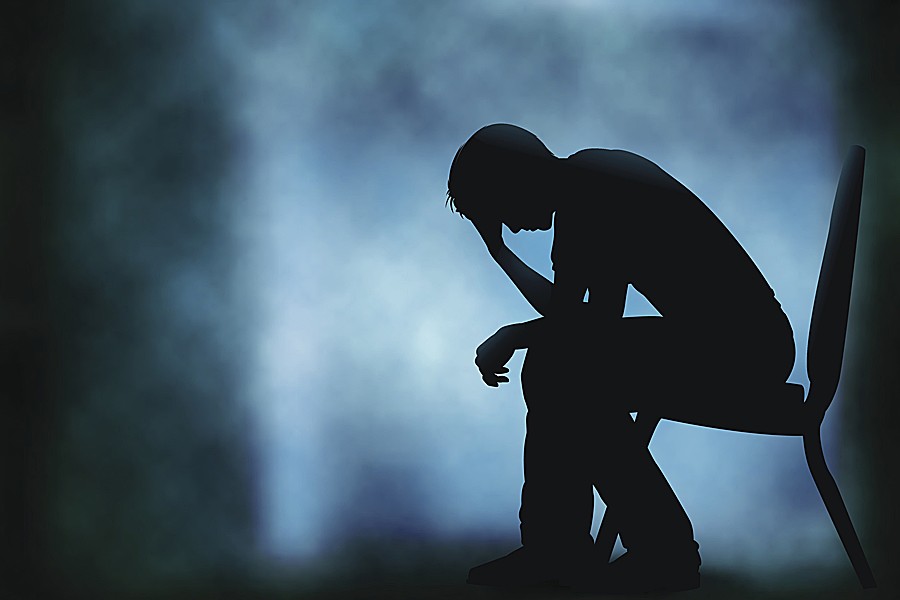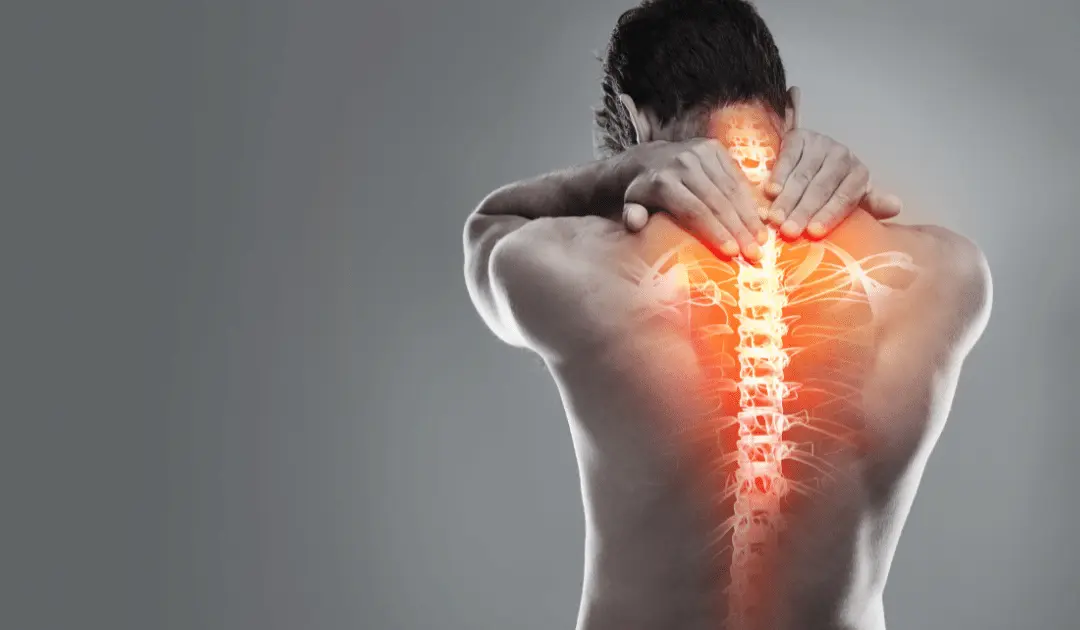Depression, clinically known as Major Depressive Disorder (MDD), is a common and serious medical illness that negatively affects how you feel, the way you think, and how you act. Characterized by persistent feelings of sadness, loss of interest in previously enjoyed activities, and a range of emotional and physical problems, depression can lead to a variety of emotional and physical problems and can decrease a person’s ability to function at work and at home. The condition is not simply a bout of the blues or a transient state of sadness but a persistent and pervasive disorder that requires proper treatment. Depression is influenced by a complex interaction of genetic, biological, environmental, and psychological factors. Symptoms must be present for at least two weeks for a diagnosis to be made, and these symptoms can include changes in sleep, appetite, energy level, concentration, daily behavior, or self-esteem. In severe cases, depression can lead to thoughts of suicide. It is a treatable condition, typically managed with a combination of medication, psychotherapy, and lifestyle changes.
Types of Depression
Depression is a complex mental health condition with various forms. While the core symptoms of sadness, hopelessness, and loss of interest are common across different types, the specific patterns and severity can vary.
- Major Depressive Disorder (MDD): Characterized by persistent feelings of sadness, worthlessness, and loss of interest, MDD significantly impacts daily life.
- Persistent Depressive Disorder (PDD): Previously known as dysthymia, PDD involves a chronic low mood that lasts for at least two years. Symptoms are generally milder than MDD but persistent.
- Bipolar Disorder: This condition involves alternating periods of mania (high energy and euphoria) and depression.
- Seasonal Affective Disorder (SAD): This type of depression occurs primarily during the fall and winter months, likely due to reduced sunlight exposure.
- Postpartum Depression: Affecting women after childbirth, postpartum depression is characterized by mood swings, anxiety, and feelings of inadequacy.
- Prenatal Depression: Depression that occurs during pregnancy can significantly impact both mother and baby.
It’s important to note that these are just some of the most common types of depression, and there are other variations and combinations. If you’re experiencing symptoms of depression, seeking professional help is crucial for diagnosis and appropriate treatment.
Symptoms of Depression
Depression manifests in a variety of ways, affecting individuals differently. While the severity and combination of symptoms can vary, common indicators of depression include:
Emotional Symptoms
- Persistent sadness, emptiness, or hopelessness
- Loss of interest or pleasure in activities once enjoyed
- Feelings of guilt, worthlessness, or helplessness
- Irritability or restlessness
- Anxiety or panic attacks
Cognitive Symptoms
- Difficulty concentrating, remembering details, or making decisions
- Negative or pessimistic thinking patterns
- Thoughts of death or suicide
Physical Symptoms
- Changes in appetite or weight (either loss or gain)
- Sleep disturbances, including insomnia or excessive sleeping
- Fatigue or loss of energy
- Physical aches and pains
- Decreased sex drive
Behavioral Symptoms
- Withdrawal from social activities and relationships
- Neglect of personal hygiene
- Changes in daily routines and habits
- Increased alcohol or drug use
- Impulsive or reckless behavior
It’s important to note that these symptoms can overlap with other medical conditions, and self-diagnosis should be avoided. If you’re experiencing persistent symptoms of depression, it’s crucial to seek professional help for accurate diagnosis and appropriate treatment.
Causes and Risk Factors of Depression
Depression is a complex condition influenced by a combination of factors. While the exact cause often remains elusive, several factors are associated with an increased risk of developing depression.
Biological Factors
- Genetics: A family history of depression can increase one’s susceptibility.
- Neurotransmitter Imbalances: Disruptions in the brain’s chemical messengers, such as serotonin, norepinephrine, and dopamine, are believed to play a role.
- Hormonal Changes: Hormonal fluctuations, particularly during pregnancy, postpartum, and menopause, can contribute to depression.
- Medical Conditions: Certain medical conditions like thyroid disorders, chronic pain, and heart disease can increase the risk of depression.
Psychological Factors
- Personality Traits: Individuals with low self-esteem, pessimism, or a tendency towards rumination may be more vulnerable to depression.
- Childhood Trauma: Experiencing abuse, neglect, or other traumatic events can increase the risk of developing depression later in life.
- Negative Thinking Patterns: Cognitive distortions and negative thought patterns can contribute to the development and maintenance of depression.
Environmental Factors
- Stressful Life Events: Major life changes, such as job loss, divorce, or the death of a loved one, can trigger depression.
- Substance Abuse: Alcohol and drug abuse can increase the risk of depression and worsen symptoms.
- Lack of Social Support: Social isolation and loneliness can contribute to the development of depression.
It’s important to note that depression is often a combination of these factors. While some individuals may be more genetically predisposed, environmental stressors and psychological factors can also play significant roles.
Diagnosing Depression
Diagnosing depression involves a comprehensive evaluation of an individual’s symptoms, medical history, and overall functioning. A mental health professional will typically follow these steps:
Clinical Evaluation
- Detailed Symptom Assessment: The clinician will inquire about the nature, severity, duration, and impact of depressive symptoms on daily life. This includes assessing emotional, cognitive, physical, and behavioral changes.
- Medical History: A thorough review of the patient’s medical history is essential to rule out any underlying physical conditions that might mimic depression symptoms.
- Physical Examination: Basic physical exams and blood tests may be conducted to identify any potential medical causes for the symptoms.
Diagnostic Tools
To aid in the diagnosis, mental health professionals often utilize standardized questionnaires and rating scales. Some commonly used tools include:
- Patient Health Questionnaire (PHQ-9): This self-report questionnaire assesses the severity of depression symptoms.
- Beck Depression Inventory (BDI): Another self-report measure used to evaluate depressive symptoms.
Differential Diagnosis
It’s essential to differentiate depression from other mental health conditions or medical illnesses that may present with similar symptoms. This process involves carefully considering the patient’s history, symptoms, and results from physical examinations and laboratory tests.
By combining clinical judgment with diagnostic tools, mental health professionals can accurately diagnose depression and develop an appropriate treatment plan.
Treatment Options for Depression
Depression is a treatable condition, and a variety of approaches can be effective. The best treatment plan often involves a combination of therapies.
Psychotherapy
Psychotherapy, or talk therapy, involves working with a mental health professional to understand and manage depressive symptoms. Different types of therapy include:
- Cognitive-Behavioral Therapy (CBT): Focuses on identifying and changing negative thought patterns.
- Interpersonal Therapy (IPT): Concentrates on improving interpersonal relationships and communication skills.
- Psychodynamic Therapy: Explores deep-seated emotional patterns to address underlying issues.
- Group Therapy: Offers support and shared experiences with others facing similar challenges.
Medications
Antidepressants are commonly prescribed to help regulate mood and reduce depressive symptoms. Several classes of antidepressants are available, including:
- Selective Serotonin Reuptake Inhibitors (SSRIs): Commonly prescribed for depression.
- Serotonin-Norepinephrine Reuptake Inhibitors (SNRIs): Target both serotonin and norepinephrine.
- Tricyclic Antidepressants (TCAs): Older antidepressants with more side effects.
- Monoamine Oxidase Inhibitors (MAOIs): Reserved for severe cases due to potential interactions with certain foods and medications.
It’s important to note that antidepressants take several weeks to take effect, and finding the right medication often involves trial and error.
Lifestyle Changes
Adopting healthy lifestyle habits can complement professional treatment and improve overall well-being:
- Regular Exercise: Physical activity helps boost mood and energy levels.
- Balanced Diet: Nutrient-rich foods support brain health and overall well-being.
- Sufficient Sleep: Prioritizing quality sleep is essential for mood regulation.
- Stress Management: Techniques like meditation, yoga, or deep breathing can help reduce stress.
Additional Treatment Options
In severe cases or when other treatments have been ineffective, additional options may be considered:
- Electroconvulsive Therapy (ECT): A medical procedure involving controlled electrical stimulation of the brain.
- Transcranial Magnetic Stimulation (TMS): Non-invasive procedure that uses magnetic fields to stimulate the brain.
- Ketamine Infusion Therapy: A newer treatment option showing promise for treatment-resistant depression.
Living with Depression: Coping Strategies
Coping with depression requires a multifaceted approach that includes professional help, lifestyle adjustments, and self-care strategies.
Building a Support Network
Connecting with others is crucial for managing depression. Building a strong support system involves:
- Reaching out to loved ones: Sharing your feelings with trusted friends or family can provide comfort and understanding.
- Joining support groups: Connecting with others who are experiencing similar challenges can offer valuable support and coping strategies.
- Seeking professional help: Therapists and counselors can provide guidance and tools for managing depression.
Setting Realistic Goals
Breaking down overwhelming tasks into smaller, achievable goals can boost self-esteem and motivation. Start with small steps and gradually increase challenges as you regain confidence.
Engaging in Hobbies and Interests
Rekindling interest in activities you once enjoyed can be beneficial. Exploring new hobbies can also provide a sense of purpose and accomplishment.
Self-Care Practices
Prioritizing self-care is essential for managing depression. This includes:
- Establishing a routine: Regular sleep, meals, and exercise contribute to overall well-being.
- Practicing self-compassion: Treating yourself with kindness and understanding can improve mood.
- Utilizing relaxation techniques: Mindfulness, meditation, or deep breathing can help manage stress and anxiety.
Preventing Relapse
Adhering to treatment plans, monitoring symptoms, and seeking early intervention for recurrent episodes are crucial for managing depression long-term. It’s essential to maintain a healthy lifestyle, build a strong support network, and continue to prioritize self-care.
Remember, recovery from depression is a journey, and there may be setbacks. Be patient with yourself and celebrate small victories.
The Impact of Depression
Depression casts a wide shadow, affecting not only mental health but also physical well-being, relationships, and daily functioning.
Impact on Physical Health
Individuals with depression are at an increased risk of developing chronic physical health conditions, including:
- Heart disease: Depression can contribute to high blood pressure, increased inflammation, and unhealthy lifestyle choices.
- Diabetes: Depression can interfere with blood sugar control and increase the risk of developing type 2 diabetes.
- Weakened immune system: Depression can impair the body’s ability to fight off infections.
- Chronic pain: Depression can exacerbate the experience of chronic pain conditions.
Impact on Mental Health
Depression often co-occurs with other mental health conditions, such as anxiety disorders, substance abuse, and eating disorders. It can also increase the risk of suicide.
Impact on Relationships
Depression can strain interpersonal relationships, leading to difficulties in communication, isolation, and conflict. It can also impact family dynamics and create challenges in maintaining social connections.
Impact on Daily Functioning
Depression significantly impairs daily activities, including work, school, and self-care. It can lead to reduced productivity, absenteeism, and difficulty managing responsibilities. Financial difficulties may also arise as a result of decreased earning potential.
Understanding the far-reaching effects of depression is crucial for seeking appropriate support and treatment.
The Impact of Depression on Daily Life
Depression casts a wide shadow, affecting various aspects of an individual’s life. Beyond the emotional turmoil, it has significant repercussions on physical health, relationships, and overall well-being.
Physical Health Implications
- Chronic Health Conditions: Depression is linked to an increased risk of developing chronic illnesses such as heart disease, diabetes, and gastrointestinal disorders.
- Sleep Disturbances: Difficulty falling asleep, staying asleep, or waking up too early are common symptoms of depression, leading to further physical and mental exhaustion.
- Reduced Immunity: Depression can weaken the immune system, making individuals more susceptible to infections.
- Chronic Pain: Depressed individuals often report increased pain sensitivity and difficulty managing chronic pain conditions.
Relationship Challenges
Depression can strain interpersonal relationships, leading to:
- Social Withdrawal: Isolation and decreased interest in social activities.
- Communication Difficulties: Challenges in expressing feelings and needs.
- Conflict: Increased irritability and frustration can lead to conflicts with loved ones.
Occupational and Academic Impairment
Depression significantly impacts daily functioning, affecting:
- Job Performance: Difficulty concentrating, decreased productivity, and increased absenteeism.
- Academic Performance: Struggling with coursework, difficulty completing assignments, and social withdrawal.
- Financial Difficulties: Reduced income due to job loss or decreased productivity can lead to financial strain.
Myths and Misconceptions About Depression
Despite being a common mental health condition, depression is often surrounded by misconceptions and stigma. Understanding the facts can help dispel these myths and encourage individuals to seek help.
Common Misconceptions
- Depression is a sign of weakness: Depression is a complex medical condition, not a character flaw. It affects people from all walks of life, regardless of their strength or resilience.
- Medication is the only solution: While medication can be an effective treatment option, it’s often used in conjunction with therapy and lifestyle changes.
- People with depression can just “snap out of it”: Depression is not a choice or a temporary mood. It requires professional help and time to heal.
- Talking about depression will make it worse: Sharing feelings and seeking support is a crucial step in recovery.
- Depression only affects certain types of people: Depression can affect anyone, regardless of age, gender, race, or socioeconomic status.
Conclusion
Importance of Seeking Help
Seeking help for depression is crucial because it is a serious mental health condition that can significantly impair one’s ability to function in daily life. Early intervention can prevent the condition from worsening and reduce the risk of complications such as substance abuse, other mental health disorders, and suicidal behavior. Professional help, including therapy and medication, provides individuals with the tools and strategies needed to manage symptoms and improve overall well-being. Mental health professionals can offer personalized treatment plans and support systems that address the unique needs of each person, facilitating a more effective recovery process .
Hope and Recovery
Recovery from depression is not only possible but achievable with the right treatment and support. Many individuals who seek help experience significant improvements in their symptoms and regain their quality of life. The journey to recovery may involve a combination of medication, psychotherapy, lifestyle changes, and support from family and friends. It’s important to remember that recovery is a gradual process, and setbacks are a normal part of it. Staying hopeful and committed to treatment can lead to long-term positive outcomes. Stories of recovery can inspire and motivate those currently struggling with depression, showing them that a fulfilling life is within reach .
Encouragement for Ongoing Support
Ongoing support is vital for managing depression and maintaining mental health. This support can come from various sources, including mental health professionals, support groups, family, and friends. Continuous engagement in therapy, regular follow-up with healthcare providers, and participation in peer support groups can provide a sense of community and shared experience, reducing feelings of isolation. Encouraging a supportive environment helps individuals feel understood and less alone in their struggles. Additionally, promoting mental health education and reducing stigma associated with depression can empower more people to seek the help they need without fear of judgment .
By understanding the importance of seeking help, maintaining hope for recovery, and encouraging ongoing support, individuals can navigate the challenges of depression more effectively and work towards a healthier, more balanced life.





Thanks for breaking this down step-by-step.